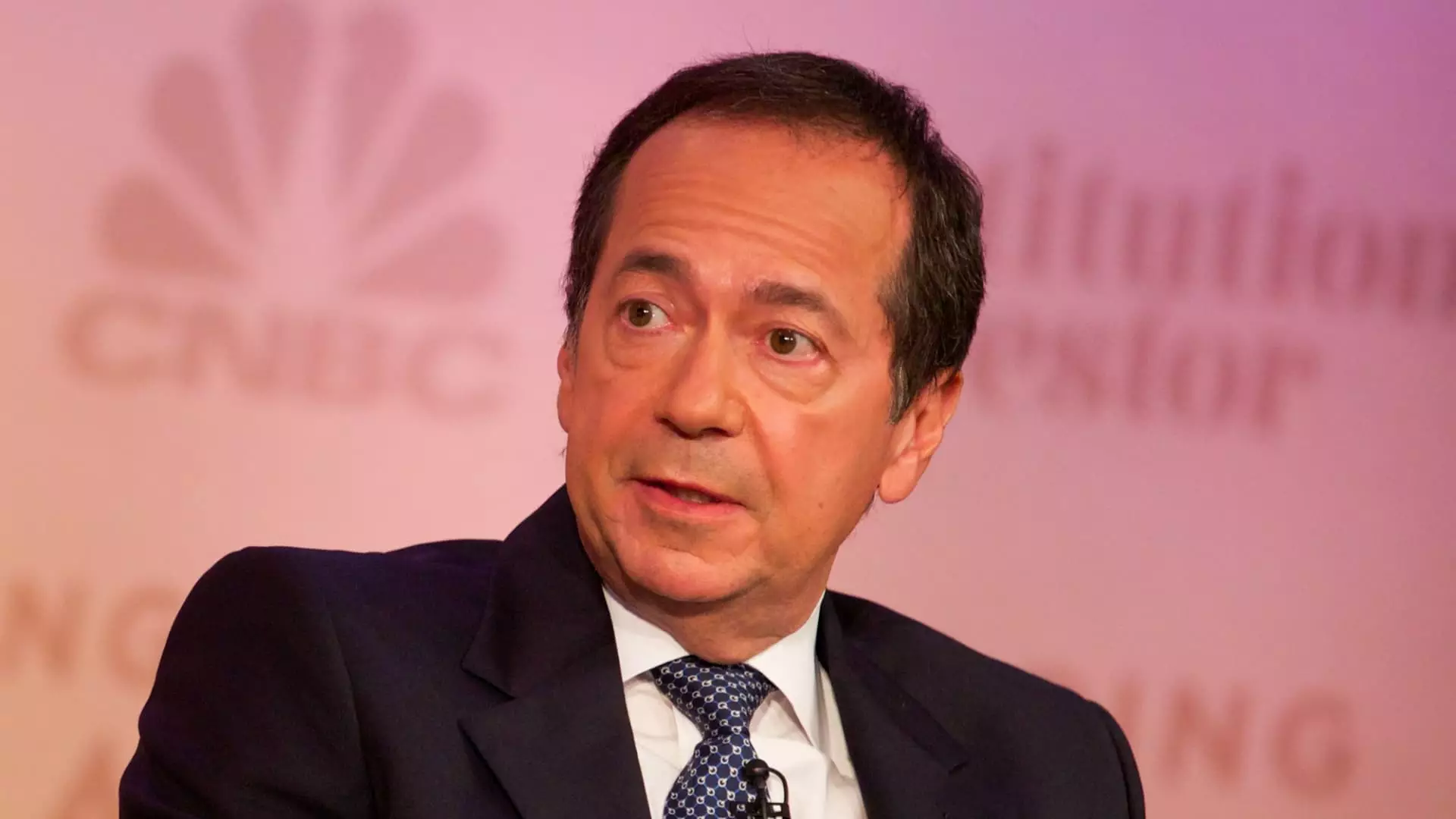In the ever-evolving landscape of American finance, few voices resonate with as much authority as that of hedge fund billionaire John Paulson. Renowned for his prescient ability to foresee the housing market crash, Paulson has emerged as a staunch critic of potential tax reforms advocated by prominent political leaders, specifically Vice President Kamala Harris. In a recent interview with CNBC, Paulson voiced his grave concerns about the implications of proposed tax hikes, suggesting that they could precipitate a significant collapse in financial markets, alongside an impending recession.
Paulson’s apprehension centers around Harris’s proposals that entail substantial increases in corporate and capital gains tax rates. He highlights a proposed raise in the corporate tax rate from 21% to 28%, alongside a staggering hike in the capital gains tax, which would leap from 20% to 39%. Adding another layer of complexity, Harris has floated the prospect of taxing unrealized capital gains at a rate of 25%. Paulson firmly posits that the implementation of these measures could trigger a catastrophic downturn in market stability, marking a potential turning point in economic conditions.
The potential outcomes of these tax reforms could create ripples through various sectors of the economy. Paulson warns that should the proposed policies come to fruition, there would likely be mass sell-offs of various assets including stocks, homes, and even luxury items like artwork. This notion aligns with traditional economic theory, which posits that higher taxes on capital gains could discourage investment and result in lower market activity. For an investor of Paulson’s pedigree, the implications of such a scenario would be profound, given that the financial markets are often strongly influenced by investor confidence and spending behaviors.
Conversely, the Biden-Harris tax platform does appear to have its skeptics. Individuals close to the Harris campaign, including notable entrepreneur Mark Cuban, have expressed doubts regarding the feasibility of taxing unrealized gains, suggesting that this aspect of her policy may face substantial resistance in Congress. This skepticism raises questions about the durability of any proposed tax hikes and whether they will translate into actionable policies.
While Paulson’s insights provoke critical thought about potential economic fallout from aggressive tax reforms, it is important to consider the broader context of Wall Street’s reaction. Some economists maintain that higher corporate tax rates could indeed impact earnings for firms on the S&P 500, thereby affecting share prices. Nevertheless, most financial analysts do not align with Paulson’s bleak forecast that suggests an imminent market crash based solely on these reforms.
Further complicating the debate is the juxtaposition of Paulson’s support for former President Donald Trump’s economic strategies, including his assertion that Trump’s policies could foster economic growth. Paulson has been rumored as a possible Treasury Secretary in a potential second Trump administration, emphasizing an economic agenda that centers around lower taxes as a driver for revenue growth and deficit reduction. He appears to hold a belief that judiciously implemented tariffs—a contentious issue—could not only mitigate inflation but also provide a more solid economic footing.
As the political landscape continues to shift, the tension between economic policy and political ideology grows ever more pronounced. For investors like Paulson, the stakes are exceedingly high. A looming uncertainty is whether proposed tax reforms will become reality and how they might affect the broader market landscape. Paulson’s cautious attitude serves as a clarion call for investors and policymakers alike, urging them to evaluate the long-term ramifications of proposed tax strategies.
Paulson’s concerns about the influence of possible tax hikes on market stability illuminate a critical intersection between fiscal policy and economic reality. As discussions around tax reform continue, the ramifications will surely be felt across the markets, impacting investor behavior and economic growth in profound and potentially unpredictable ways. Whether these reforms will instigate the dire outcomes Paulson predicts remains to be seen, but one thing is clear: the conversation around taxation will undeniably shape the financial landscape in the years to come.

